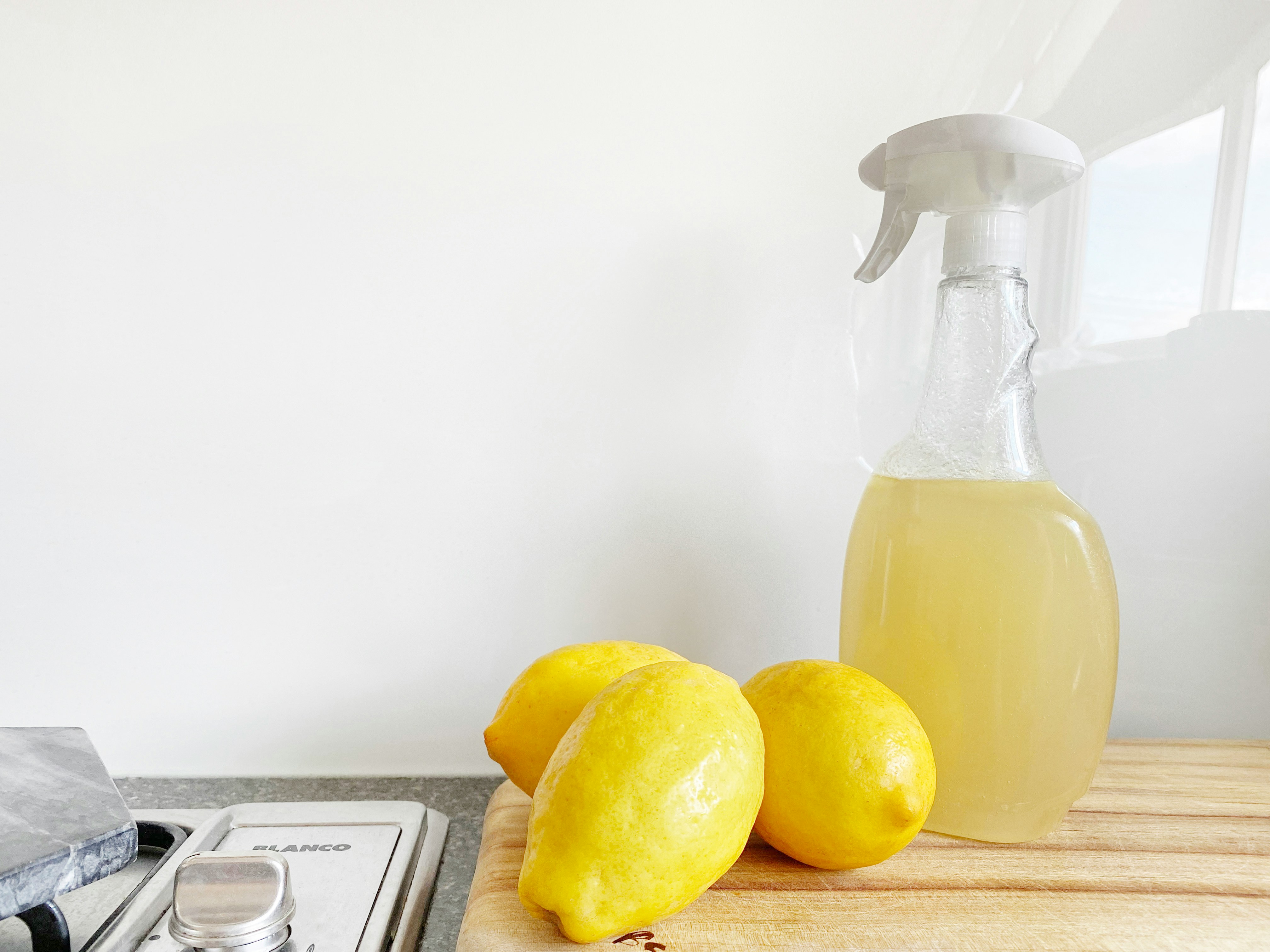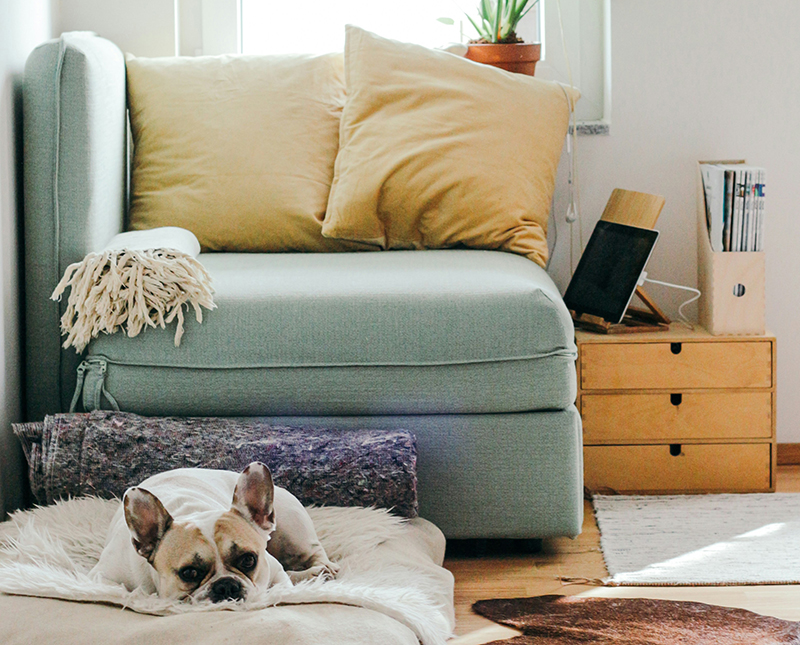We are bombarded with toxins every day, and some of them are very close to home
By Dina Gavarieva
We are bombarded with 700,000 toxins a day – and quite a few of them are lurking in our homes.
These unseen poisons – both natural and manmade – can affect our health in significant ways, ranging from respiratory problems to immune system repression to cancer.
But there are changes you can make to minimise this and, in so doing, minimise the risk we take simply by living in what should be our castle and safe place.
It’s time to detox your home.
The first ‘nasty’ on your agenda should be mould, a fungal growth that can be a very real problem in Cyprus homes. Mould-induced illnesses are many and varied and, if you suffer from any form of chronic illness, can impede recovery.
One of the easiest and most effective ways to deal with mould is to call in an expert to treat the contaminated area. However, you also should seriously consider throwing out any furniture, books, clothes, magazines or carpets that have become mouldy.
Once your house has been cleaned of this scourge, it could be an ideal time to install air purifiers – to remove any mould spores still lurking and to prevent them from making a comeback.
If your budget doesn’t stretch to an air purifier, there are a number of plants that can also help clean up the air in your house, including rubber plants, bamboo palms, aloe vera, spider plants and chrysanthemums.
Other helpful air purifiers – and possible culinary additions – are lavender, mint, rosemary, sage, thyme, chives, coriander and chamomile, which can help to eliminate almost 90 per cent of volatile organic compounds (VOCs) from the air, which are toxic and can cause a range of health problems.
The next stage of your home detox should involve reducing exposure to chemicals. This means avoiding chemically-scented wrappings, plastics, toilet paper and air fresheners. Instead, shop for natural air fresheners – perhaps, with essential oils – organic detergents, organic soaps and cleaning products such as tea tree oil, vinegar, soda bicarbonate and lemon.
When you use the right ingredients, homemade cleaning sprays can tackle stains, spills, greasy fingerprints and bad odours as effectively as shop-bought products.
Keeping your house clean is a never-ending job, but another toxic nightmare for Cyprus homes is dust because dust collects toxins. Apart from daily dusting with a damp cloth, one way to keep dust levels low is to place mats at the door and take off outside shoes when entering the home.
Also make sure your AC units are clean. A dirty unit is a breeding ground for mould, fungi, bacteria and germs. When you turn on your unit, these particles get blown into the room and contaminate the air.
Other home detox tips include using organic cotton bed sheets and natural fabrics around the house and, if you can afford it, install an advanced water purifying system for both drinking and showering.
In the kitchen you should consider replacing Teflon or aluminium cookware with stainless steel, ceramic, or wrought iron. Also avoid purchasing food in plastic, Styrofoam, or foil packaging. Also buy fresh whenever you can, preferably locally grown and organic. Steer clear of any refined oils, and take full advantage of Cyprus’ high-quality, extra virgin olive oils.
Try to cut trans fats from your diet such as margarine, vegetable shortening, fried foods and baked goods like crackers, biscuits and pies. Also avoid foods with artificial colouring, high fructose corn syrup, additives, preservatives, MSG, artificial sweeteners, and fizzy drinks.
And though it’s useful, do try to give aluminium the heave-ho. Chronic exposure can lead to the accumulation of aluminium in the brain, kidneys, liver and thyroid. This can cause inflammation and contribute to neurological issues.
Common sources of aluminium in the home include drinking water, cookware, foil and even canned food, antiperspirants, toothpaste and cosmetics.
And finally – and not so easy in today’s modern world, is reducing contact with electromagnetic fields (EMF). This toxic minefield involves mobile phones, Wi-Fi and household electronics. EMF can disrupt the body’s natural energy flow, leading to stress, poor sleep and decreased detoxification abilities.
Easy steps to minimise EMF exposure include turning off Wi-Fi at night, limiting mobile phone use, and unplugging devices before bed. Reducing exposure to EMF while you sleep can significantly improve your overall health.
Finally, don’t get overwhelmed by all the potential health hazards you should target. Start small and stay consistent. Detoxifying your home doesn’t have to be done all at once. Begin by replacing a few key items and gradually incorporate more changes over time.
Cleaning product alternatives
Kitchen cleaner: add 20 drops of lemon oil and 20 drops of lavender oil to a solution of 250ml cooled boiled water and 250ml white vinegar. Lemon is a great degreaser and lavender has brilliant antibacterial properties.

Bathroom cleaner: to the same solution of 250ml cooled boiled water and 250ml vinegar add 20 drops of lavender oil and 20 drops of tea tree oil. Tea tree oil has brilliant antiseptic and anti-fungal properties.
Glass cleaner: two cups of distilled water, two tablespoons vinegar, 10 drops of any essential oil of your choice.
Oven cleaner: mix one cup of apple cider vinegar, one cup of distilled water, half a cup of baking soda. Then, heat the oven to 125C. Once the oven is warm, liberally spray the cleaner on any stains, turn off the oven, let it cool, and scrub away the dirt with a sponge.
Dina Gavarieva is a qualified naturopath practising at Neomed Institute and Medical Centre, Limassol







Click here to change your cookie preferences